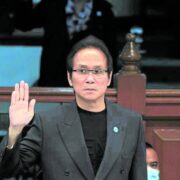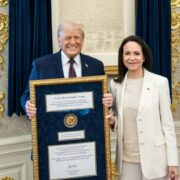Mamdani, Vico, and the Pink Movement

In 2028, I will not run. I am already telling you this now. That’s why I am free to do what I think is right,” Mayor Vico Sotto declared during the turnover ceremony for incoming Pasig officials this week. This was yet another emphatic reiteration of his disavowal of traditional politics. Right after securing a landslide victory in May, the renowned mayor underscored the importance of focusing on the ”here and now” of public service: “Every day, let’s take it one day at a time. Let’s do the best where we are right now. Let’s focus here … We need to make sure they are institutionalized; that means ensuring that whoever leads Pasig next will find it harder to do wrong, harder to be corrupt, and easier to do good and remain honest in the Pasig City government.”
I was particularly moved by his categorical rejection of the “trapo mindset” (traditional politician), whereby public servants are almost expected to constantly seek higher positions in office. It was a refreshingly rare moment of political sincerity, which I found exquisitely inspirational. To be honest, I wouldn’t be surprised if the young mayor chooses to—even if temporarily—retreat into academic life and mentorship of the next generation of public servants after his final stint as mayor of Pasig in 2028.
As with every great leader in human history, he would likely go through some inner motions and spiritual journey before embarking on his next major step in serving the Filipino people. We are tremendously lucky to have someone like him among us. But it behooves us to take up his counsel against either nurturing ”trapo culture” or constantly searching for a savior. What we need, as Vico Sotto rightly argues, is institutionalizing reforms through continuous cycles of inspirational, competent, and energetic leadership.
Luckily, we live in an era of immense political possibilities. This is why I have been, inter alia, closely following not only the success of “pink” candidates such as Bam Aquino but also the rise of progressive disruptors such as Zohran Mamdani over the past year. His remarkable “Zero to Zohran” political success can’t be overstated. An openly socialist, Uganda-born, Shia Muslim, who became a naturalized American just a few years before the COVID-19 pandemic, Mamdani captivated the hearts of countless voters by engaging in a politics of sympathy and affirmation. Instead of engaging in demagogic antics, he advanced a progressive and pluralistic agenda, which captured the spirit of New York as a global city.
Once dismissed as a cringey, attention-grabbing nuisance by critics, Zohran steadily built a grassroots-driven electoral machine that brought in thousands of volunteers and rolled out a stream of policy-oriented vlogs with a mesmerizing visual grammar and elegiac spontaneity. A ”digital native” unlike any other candidate for New York’s mayoral office, he proved a master of the ”attention economy’ through his leveraging of ”mimetic policy” pronouncements—from freezing rent costs to providing affordable childcare and public transportation to other welfare benefits that are ubiquitous across Europe, Australia, and much of the developed world.
Though his right-wing critics have zeroed in on his background with a tinge of prejudice and thinly-veiled Islamophobia, the reality is that Mamdani deftly married conviction politics with participatory democracy and pragmatic messaging—focusing on kitchen table issues. Literally speaking in multiple languages, he adopted a bold ”flood the zone” media strategy, partaking in interviews in both mainstream and new media platforms across the political spectrum.
Combined with suave and strategic analytics, which allowed him to win over swing voters and receptive audiences across vote-rich boroughs, Mamdani managed to, in the words of one strategist, “dismantle the ivory tower” of traditional politics. The fruit of his labor is not only winning over the so-called “Commie Corridor” of progressive voting districts but also scoring a shocking electoral victory among residents of the heart of global financial capitalism.
The path ahead for Mamdani, who will have to contend against well-oiled rivals in the general elections soon, and other young progressive leaders is uncertain. What’s clear, however, is that as young voters begin to constitute the majority bloc in elections, there is an unprecedented openness to fresh and new ideas about governance like never before. No longer a toddler, our own “Pink Movement” may finally get its moment of ultimately triumph if we embrace the new zeitgeist with the courage of vision and compelling organization ahead of the 2028 elections.


















